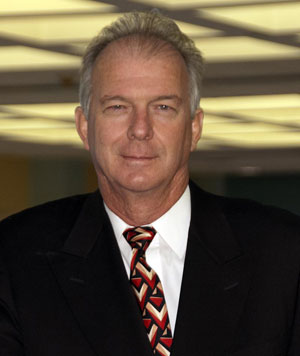State of the Industry, 2012: Part III—Bob Latham
As the high-performance marine industry faces new challenges, many companies will be putting their best foot forward to continue to advance the sport over the coming years. There are a lot of questions surrounding our market, so we thought now was as good a time as ever to sit down with nine of the most knowledgeable and respected people in the business to get their thoughts on the immediate future and the most pressing issues facing this industry.
Each weekday from Jan. 9 through Jan. 19, we’ll bring you another panel member’s answers from this nine-part Industry Focus Group feature. Not quite ready to dive into the New Year? Check out our list of the biggest stories of 2011.
BOB LATHAM
President, Latham Marine
Is it difficult to develop innovative products, and can you offer a sneak peek at anything new you have in the works for 2012?
The short answer is yes. It costs a lot of money to develop a product, do the testing, and of course the marketing, not to mention actually bringing a product to market. The difficult part is that not every idea is a winner. For 2012, we will be coming out with a variable-speed steering system for the outboard market. For example when you’re driving at low speed or at idle, the system automatically adjusts for slow-speed operation. Then when you get on plane and up to speed, the system responds appropriately and speeds up.
What do you think needs to be addressed in regard to safety concerns when it comes to both pleasure and race boats?
That’s a broad subject. In light of the tragedies in Key West (in November), let’s talk about racing. Racing organizers need to be very proficient at initiating safety into their organizations and backing it up with stricter rules—and that’s not what we have now. This is what has to be done, and that’s the end of discussion. The rules cannot be flexible and they should always be improving. You can’t leave it up to an individual race team either—enforcement is essential. Everybody who climbs into a race boat understands things can happen. I raced for many years and saw a bunch of my friend die. But organizations need to be doing their job because the boats aren’t getting any slower.
On the pleasure side, that is a whole other issue. There are a bunch of boats that will go 150 mph and even 180 mph. But I don’t think everyone understands, what can really happen at those speeds. As the boats get faster, the people involved really need to understand the equipment that they’re riding in and they have to be proficient at orchestrating that equipment safely.
Do you foresee more people upgrading their current boats or even buying something used to fix up?
Yeah, there is definitely more of a trend of people upgrading their boats as opposed to buying new ones. The good and bad thing about that is our equipment stands the test of time so people don’t have to fix our parts very often. On the flipside, we do get the opportunity to sell equipment to boaters needing to replace an inferior product.
Editor’s Note: Next up, Scott Shogren, Shogren Performance Marine


